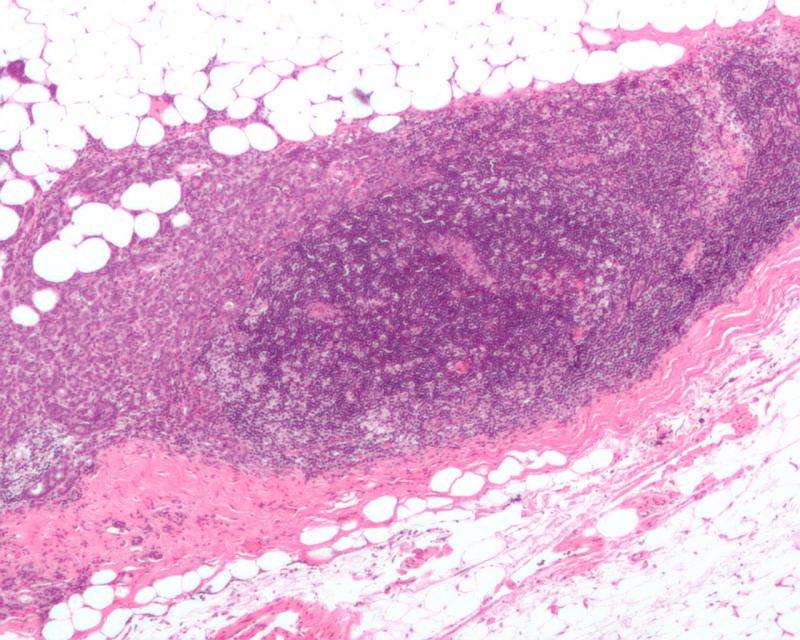Research team documents potential new treatment path for breast cancer

Immunotherapies that take off the "brakes" on the adaptive anti-tumor response have worked well in melanoma and lung cancer but less so in breast cancers. That could change.
A Vanderbilt team led by John Wilson, assistant professor of chemical and biomolecular engineering, and Rebecca Cook, associate professor of cell and developmental biology, activated innate immunity in breast cancer cells and triggered two forms of tumor cell death in mouse models.
In general breast cancer tumors harbor a decreased presence of tumor-infiltrating lymphocytes and have been considered poor candidates for triggering an immune response. The research team, however, activated innate immunity in breast cancer cells and the tumor microenvironment by testing the use of a synthetic RIG-I agonist in breast cancer cells and in a mouse model of breast cancer. RIG-I, or retinoic acid-inducible gene I, is a virus-sensing receptor that activates pro-inflammatory signaling pathways.
Reporting in the journal Cancer Research, the team found that RIG-I agonist increased the expression of proinflammatory factors and triggered two forms of cell death (apoptosis and pyroptosis). In breast tumors in mice, RIG-I activation increased tumor lymphocytes and decreased tumor growth and metastasis. The major findings:
- A nanoparticle-based approach for RIG-I activation in vivodecreases breast tumor growth and metastasis
- RIG-I signaling induces breast cancer cell death through tumor cell–intrinsic pathways
- RIG-I signaling in breast cancer cells induces intrinsic apoptosis and pyroptosis
- RIG-I signaling increases breast tumor-infiltrating leukocytes
The work demonstrates a RIG-I agonist has potent immunogenic and therapeutic effects in breast cancer. "These findings describe the first in vivo delivery of RIG-I mimetics to tumors, demonstrating a potent immunogenic and therapeutic effect in the context of otherwise poorly immunogenic breast cancers," the team concluded.
Despite advances in early detection and treatment, breast cancer remains the second leading cause of cancer-related deaths for women. Approaches that activate innate immunity in breast cancer cells and the tumor microenvironment have been of increasing interest.
More information: David L. Elion et al. Therapeutically Active RIG-I Agonist Induces Immunogenic Tumor Cell Killing in Breast Cancers, Cancer Research (2018). DOI: 10.1158/0008-5472.CAN-18-0730















